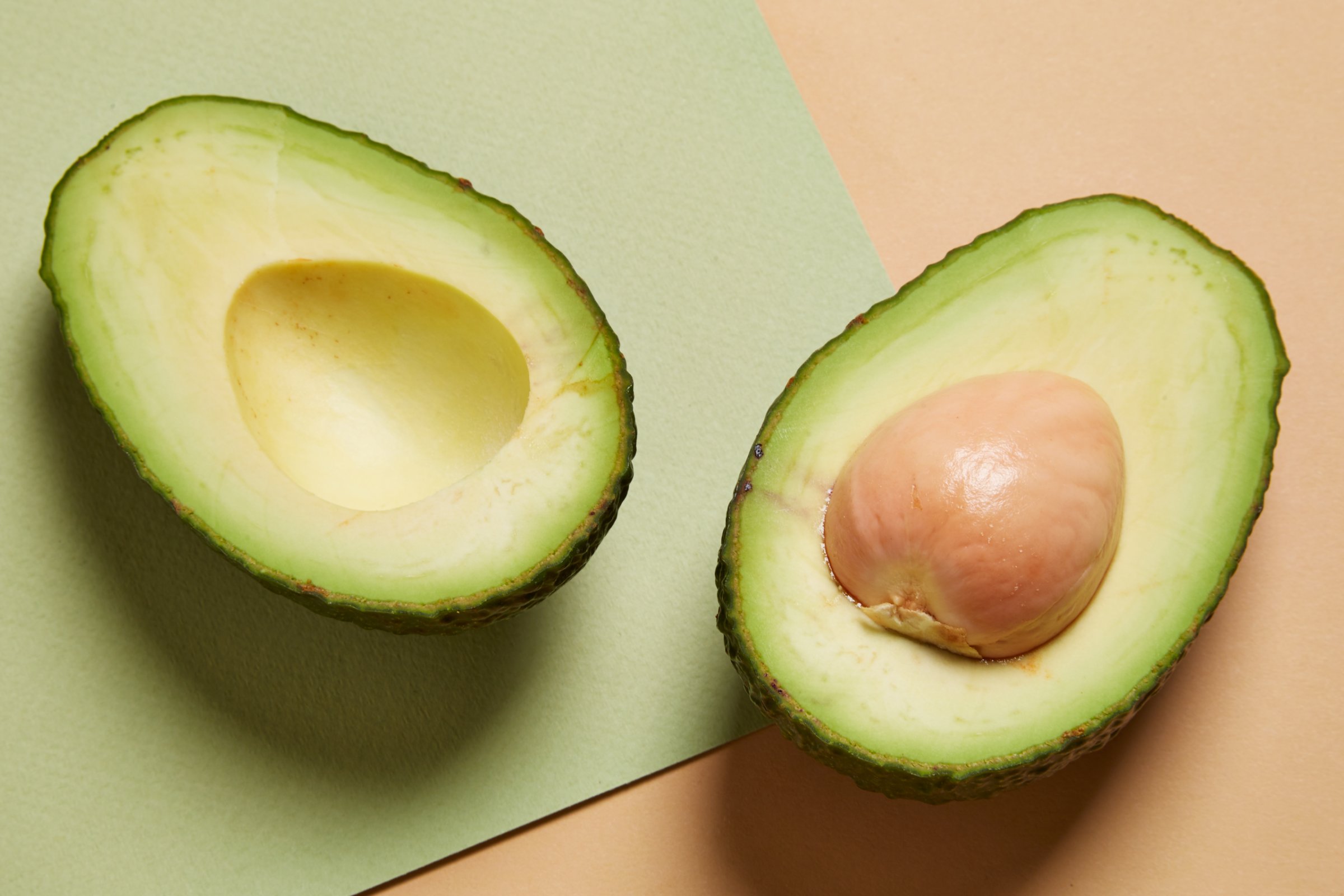
You do not need a diet avocado. I repeat: You do not need a diet avocado. But there is indeed a “skinny” version on the way. Called Avocado Light, the new variety is marketed by Spanish food company Isla Bonita as a fast ripening, slow-to-turn-brown fruit, with 30% less fat than traditional avos.
According to the company’s site, the Avocado Light was created by cultivating a particular avo breed in specific growing conditions. No additional info on its overall nutritional value is provided. The new variety is only available in Spain for now. But here’s my take on why your regular old avocados are perfect just the way they are.
First, the fat in avocado isn’t fattening. Avos may actually help you keep weight off: The National Health and Nutrition Examination Survey revealed that people who ate about half of an avocado every day weighed, on average, 7.5 pounds less than those who didn’t. They also had smaller waist measurements, and were 33% less likely to be overweight or obese.
One potential explanation is that the healthy, monounsaturated fat in avocados helps you feel full. Research from Loma Linda University found that adding half of a Hass avocado to meals resulted in a significant boost in self-reported satiety among study participants. Avo eaters also experienced a reduction in their desire to eat, which lasted for up to five hours. (One caveat to note: this study was funded by a grant from the Hass Avocado Board.)
In addition to healthy fat, avos provide antioxidants, which have also been linked to weight management. And the fruit helps fight inflammation, too—another benefit that may help you stay slim. (For more on the link between inflammation and weight, click here.) In a study done at UCLA (and also supported by the Hass Avocado Board), researchers compared people who ate burgers with or without half of a Hass avocado; they found those who had the topping produced fewer inflammatory compounds afterward. The avo eaters also experienced improved blood flow, compared to the other group; and their triglycerides (blood fats) didn’t rise above the levels seen in the plain-burger group.
What’s more, regular avocados are overall nutrient powerhouses. They provide fiber, and nearly 20 other key nutrients, including vitamins E and K, magnesium, and potassium. The fruit’s good fat also significantly boosts the absorption of certain antioxidants and fat-soluble vitamins, which hitch a ride with fat to get transported from the digestive system into the blood stream. Without knowing the overall nutrient levels in the Avocado Light, I’m hesitant to recommend them.
Now, you may be thinking, Hmmm, if I eat diet avocados, can I have them more often, or eat a whole avo instead of half? Maybe, but keep in mind that the new variety contains only 30% less fat, so you shouldn’t go crazy. And, it’s important to include a variety of healthy fats in your diet beyond avos (think nuts, seeds, olives, and tahini), to provide your body with a broader spectrum of nutrients.
After years of fat phobia, health conscious eaters are finally embracing the notions that eating fat doesn’t make you fat, and that not all fats are created equal. Avos are high up on the good-for-you fat list, so, in my opinion, they were never in need a makeover.
That said, if skinny avocados become available in the U.S. and you decide to try them, be strategic about how you eat them. For example, if avo is going to be the only or primary fat source in a meal, stick with the full-fat kind. If you want to add avo to a dish that already contains healthy fat—like extra virgin olive oil or nuts—the light version may help you better balance your macro-nutrients.
This article originally appeared on Health.com
More Must-Reads from TIME
- Cybersecurity Experts Are Sounding the Alarm on DOGE
- Meet the 2025 Women of the Year
- The Harsh Truth About Disability Inclusion
- Why Do More Young Adults Have Cancer?
- Colman Domingo Leads With Radical Love
- How to Get Better at Doing Things Alone
- Michelle Zauner Stares Down the Darkness
Contact us at letters@time.com